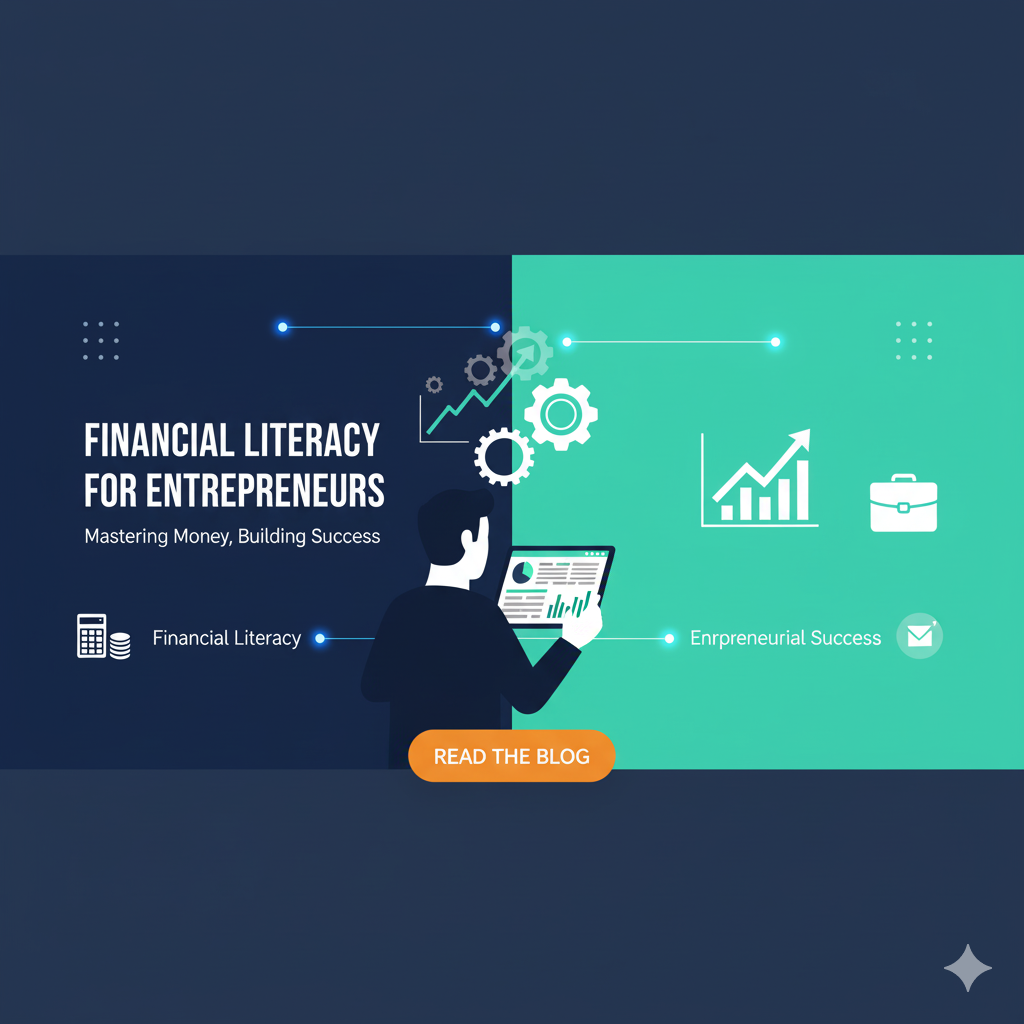In today’s fast-paced business environment, success is no longer determined by innovative ideas alone. Entrepreneurs must also understand the financial aspects of running a business. While creativity, leadership, and vision are essential qualities, the foundation of a sustainable business lies in sound money management. That is why financial literacy for entrepreneurs has become one of the most critical skills for anyone starting or scaling a venture.
Just as Best CTOs from Asia 2024 are recognized for their ability to merge technology with business value, entrepreneurs must master the art of blending innovation with financial acumen. This ensures that their ideas not only reach the market but also thrive in competitive industries.
Why Financial Literacy Matters
1. Smart Decision-Making
Entrepreneurs face constant decision-making—whether it’s pricing their products, negotiating with investors, or evaluating expansion opportunities. A strong grasp of finance allows them to analyze costs, assess risks, and forecast revenue with accuracy. Without such knowledge, even promising ventures may fail due to poor financial choices.
2. Effective Resource Allocation
Startups often operate with limited resources. Entrepreneurs with financial literacy skills know how to allocate funds efficiently—whether it’s investing in marketing, hiring talent, or upgrading technology. Prioritizing spending becomes easier when one understands financial statements and cash flow projections.
3. Securing Funding
Investors and banks demand transparency and solid financial planning before offering capital. Entrepreneurs who can present accurate balance sheets, profit-and-loss statements, and cash flow reports instill confidence in stakeholders. Financial literacy ensures that they not only raise funds but also use them responsibly to fuel growth.
4. Risk Management
Every business carries risks, from market fluctuations to unforeseen expenses. Entrepreneurs with financial knowledge are better equipped to identify potential threats, plan contingencies, and maintain stability during economic downturns. This proactive approach minimizes the chances of business collapse.
5. Long-Term Sustainability
While quick profits are tempting, lasting success comes from steady, well-managed growth. Financial literacy empowers entrepreneurs to focus on long-term sustainability, ensuring that their businesses adapt to changing markets while maintaining profitability
Key Components of Financial Literacy
Understanding Financial Statements
Entrepreneurs must be able to interpret balance sheets, income statements, and cash flow statements. These tools provide insights into the financial health of a business and guide strategic decisions.
Budgeting and Forecasting
Budgeting allows entrepreneurs to plan expenses, while forecasting helps predict future performance. Together, they create a roadmap for growth and prevent overspending.
Tax Planning
Tax laws can be complex, but ignorance often leads to penalties or missed benefits. A financially literate entrepreneur stays compliant while optimizing their tax obligations to save money.
Debt and Equity Management
Raising capital requires a balance between debt financing and equity investment. Understanding the advantages and disadvantages of both ensures that entrepreneurs maintain control while securing adequate funds.
Cash Flow Management
Cash flow is the lifeline of any business. Entrepreneurs must track incoming and outgoing cash to avoid liquidity issues that could jeopardize daily operations.
Real-World Relevance
Consider the many startups that fail within their first five years. While lack of market demand is often cited, poor financial management is an equally common culprit. Entrepreneurs with strong financial literacy are less likely to overspend, mismanage resources, or rely blindly on external accountants.
The same principle applies globally. Just as Best CTOs from Asia 2024 demonstrate the importance of bridging technology and leadership, entrepreneurs prove that success requires bridging innovation and finance. Both roles highlight the need for holistic knowledge to sustain modern businesses.
Building Financial Literacy as an Entrepreneur
- Education and Training
Entrepreneurs can strengthen their knowledge through workshops, online courses, and certifications in finance and accounting. Even a basic course can make a significant difference in decision-making. - Networking with Experts
Surrounding oneself with accountants, financial advisors, and mentors provides valuable guidance. Learning from experienced professionals helps entrepreneurs avoid common pitfalls. - Practical Application
Theory alone is not enough. Entrepreneurs must regularly analyze their own financial data, track expenses, and make adjustments based on real-world performance. - Leveraging Technology
Modern financial tools, apps, and software make it easier for entrepreneurs to manage accounts, generate reports, and track cash flow without requiring deep accounting expertise.
Challenges Entrepreneurs Face Without Financial Literacy
- Misinterpreting profitability, leading to overspending.
- Poor cash flow management, resulting in inability to pay suppliers or employees.
- Inability to attract investors due to lack of credible financial data.
- Falling into excessive debt without clear repayment plans.
- Failing to scale a business due to poor long-term financial planning.
Each of these challenges demonstrates that even the most innovative business idea cannot succeed without strong financial foundations.
Conclusion
The importance of financial literacy for entrepreneurs cannot be overstated. It is the bedrock upon which successful ventures are built. From raising capital to managing risks and ensuring long-term sustainability, financial knowledge shapes the trajectory of entrepreneurial journeys.
In the modern world, where competition is fierce and markets evolve rapidly, entrepreneurs who master financial literacy gain a competitive edge. Much like visionary leaders celebrated among the Best CTOs from Asia 2024, entrepreneurs who combine creativity with financial intelligence position themselves for enduring success.



